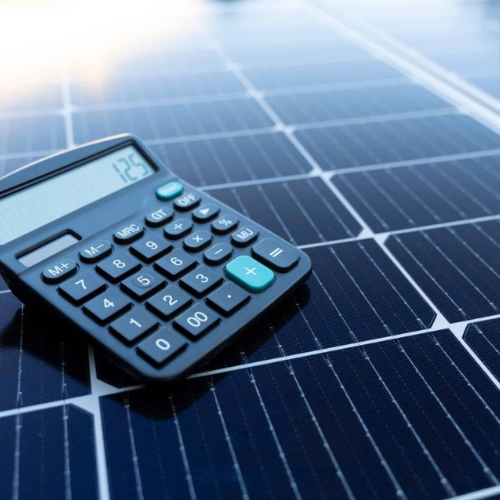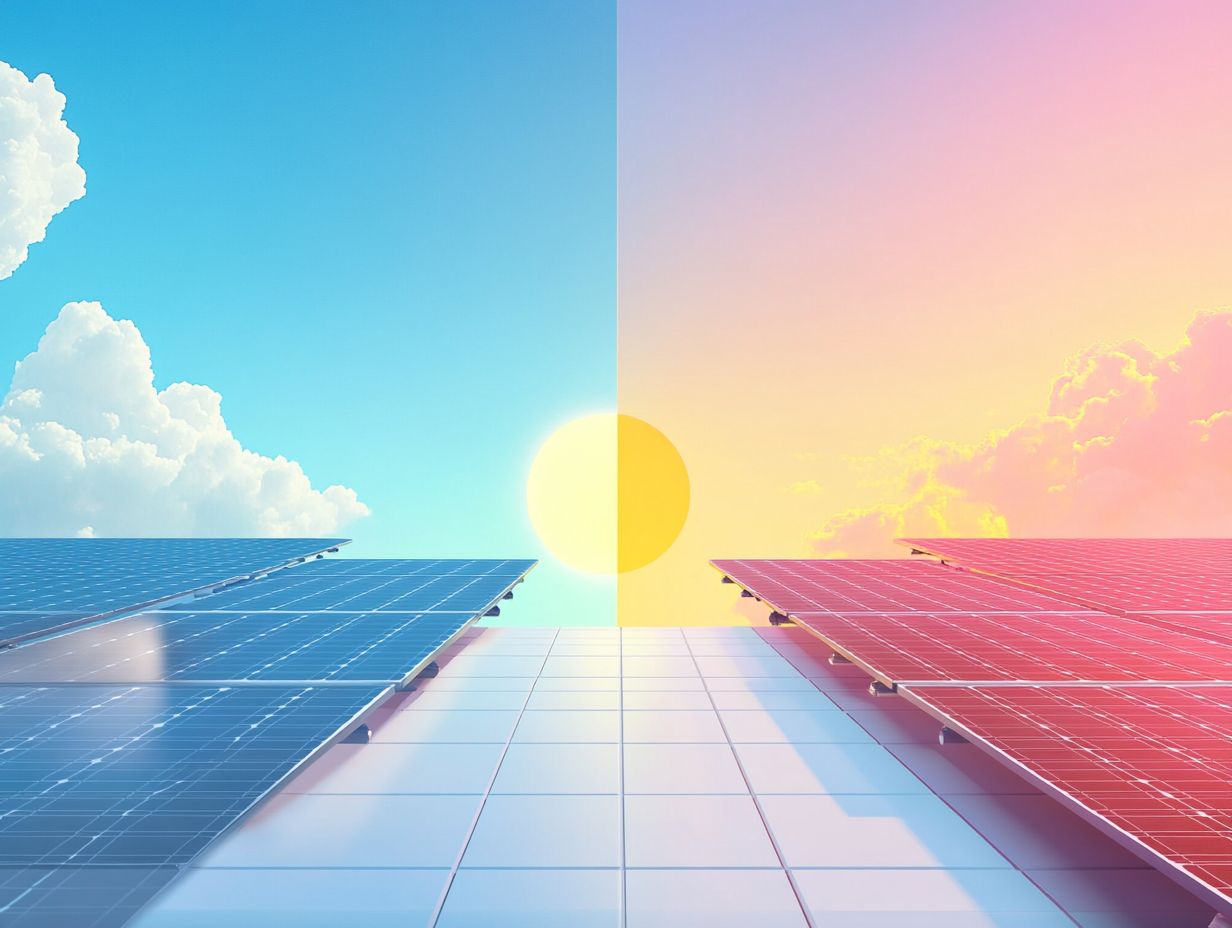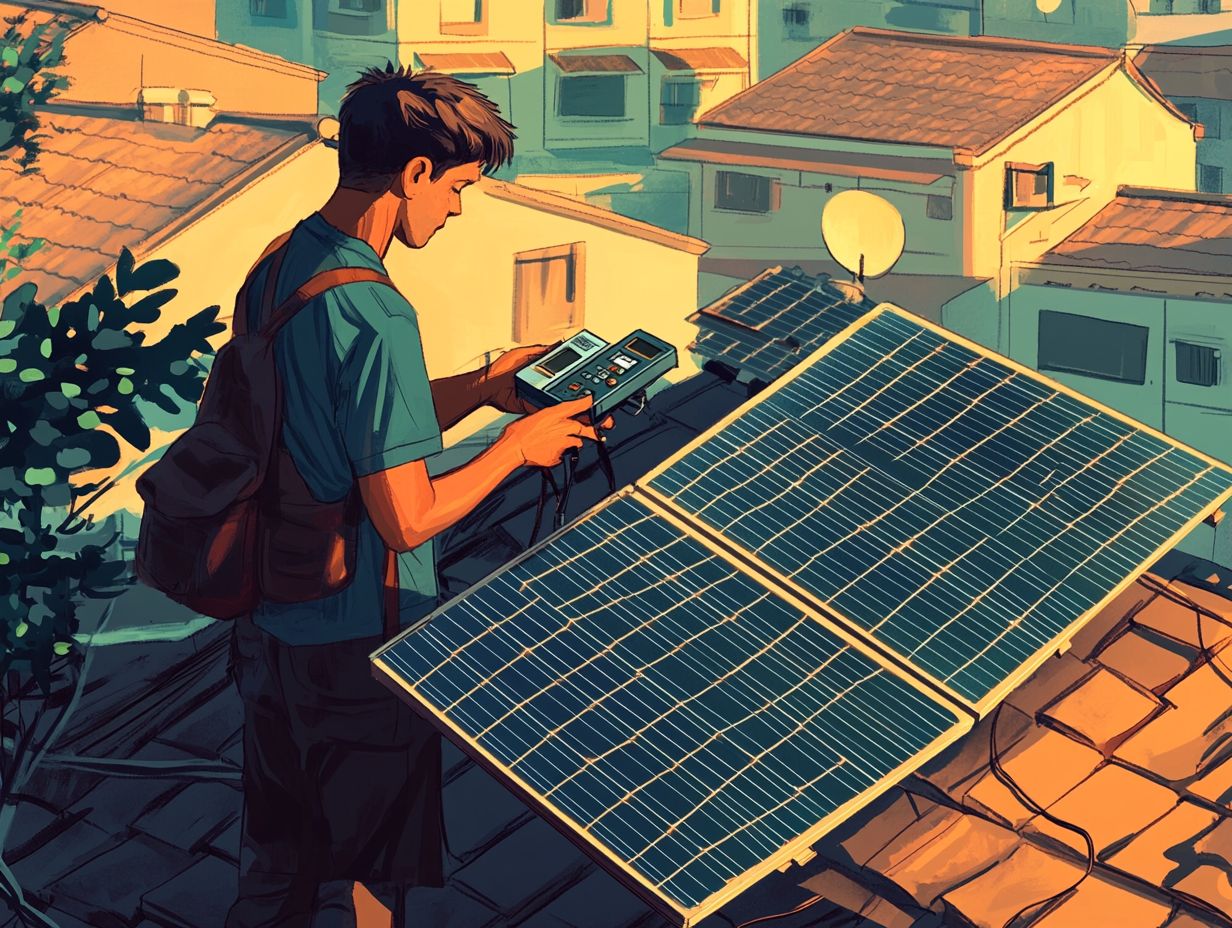Contents
- 1 The Importance of Durability in Solar Panels
- 2 Factors Affecting Solar Panel Durability
- 3 Solar Panel Warranty Coverage
- 4 What to Look for in a Solar Panel Warranty
- 5 Maximizing Solar Panel Durability
- 6 Evaluating Product Recalls and Warranty Claims
- 7 Frequently Asked Questions
- 7.1 What is solar panel durability?
- 7.2 What factors affect solar panel durability?
- 7.3 Do all solar panels come with a warranty?
- 7.4 What does a solar panel warranty typically cover?
- 7.5 How long do solar panel warranty periods typically last?
- 7.6 What should I do if I have an issue covered by my solar panel warranty?
As solar energy becomes a go-to choice for many homeowners and businesses, understanding the durability of solar panels is crucial for making a smart investment.
Durability matters because there are several factors that come into play, such as temperature fluctuations and environmental factors, plus you need to think about the importance of choosing the right warranty for your solar panel investment.
We’ve also got some tips for you on maintaining your panels, what to do if they get damaged, and how to ensure you’re getting the most out of your solar energy system.
Dive in with us to discover the key aspects of solar energy systems that will help you harness the power of the sun efficiently and reliably, ensuring long-term performance and energy savings.
The Importance of Durability in Solar Panels
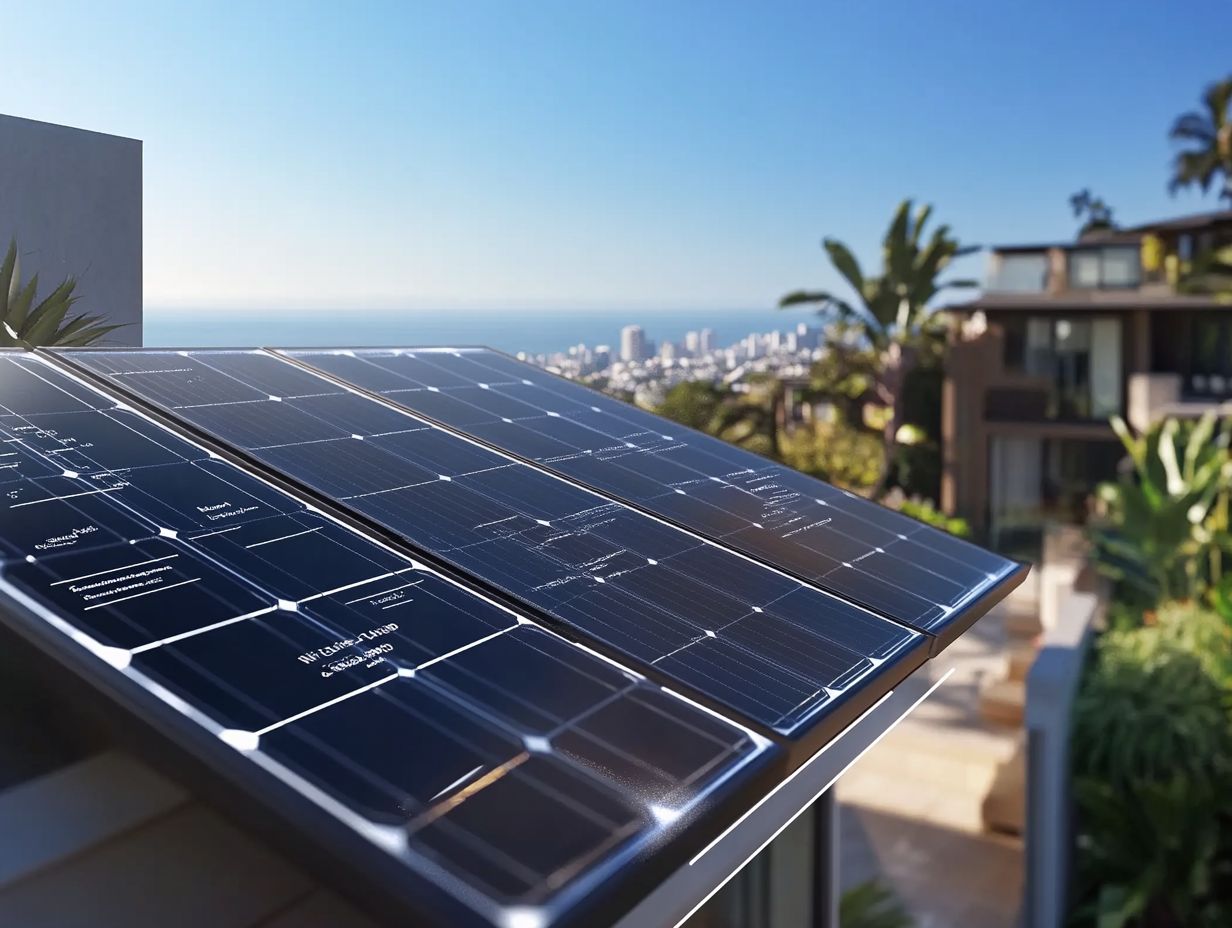
The durability of solar panels is crucial for ensuring reliable power generation over the years. This involves understanding the impact of solar efficiency and inverter lifespan on the overall system optimization.
Those solar panels, made up of photovoltaic cells, need to handle all sorts of weather conditions and environmental factors like UV exposure, temperature extremes, and corrosion.
By investing in high-quality solar power systems, such as monocrystalline or polycrystalline panels, you can boost their performance and efficiency while keeping degradation at bay.
Plus, understanding the significance of durability can help you make smart choices about installation and maintenance, leading to better energy savings and a smaller environmental footprint.
King, D. L., Boyson, W. E., & Kratochvil, J. A. (2004). Photovoltaic array performance model. Sandia National Laboratories. Link
Why Durability is Important in Solar Panels
Durability in solar panels is a big deal when it comes to their performance, longevity, and overall return on investment. It’s definitely something you want to consider for any solar energy project. A high-quality solar module is built to handle tough conditions and minimize degradation over time, which means you get consistent energy output and efficiency.
When you’re checking out different options, it’s smart to pay attention to the manufacturer warranty offered, as it often reflects the quality assurance and testing standards. That warranty often gives you a good idea of how durable the panels are expected to be. Generally, if you see longer warranties, that’s a sign that the manufacturer has more confidence in the product’s ability to perform well over the years, which can help you save on potential replacement costs down the line.
Durable panels with strong weather and hail resistance contribute significantly to energy conservation strategies, too. They maintain their efficiency throughout their lifespan, allowing you to enjoy greater energy savings while also reducing your carbon footprint. This not only ramps up the financial benefits for you but also contributes to a more sustainable future.
Factors Affecting Solar Panel Durability
Understanding what affects the durability of solar panels can really help you pick the right product for your energy needs and ensure it performs well for the long haul, considering factors such as cost-effectiveness and energy production.
You’ll want to consider key factors like the quality of materials used in the construction of the solar modules, how well they resist weather and UV exposure, and their ability to handle temperature extremes and corrosion.
These factors are crucial when evaluating solar energy systems.
Weather and Environmental Conditions
Weather and environmental conditions really matter when it comes to the durability of your solar panels. They have to handle everything from UV exposure to temperature extremes. Things like hail resistance and the ability to withstand high winds can seriously affect how well your solar power systems perform and how long they last.
If your panels are exposed to intense UV radiation for too long, the materials can start to break down, which might lead to a drop in efficiency over time. And let’s not forget those extreme temperature swings—whether it’s blazing hot or freezing cold, those conditions can really test the structural integrity of your system.
Quality solar panels are built to handle these challenges, ensuring they stay effective throughout their operational lifespan. By getting a grip on how environmental factors interact with solar technology, you can make smart choices about installation and maintenance, helping to keep your energy generation at its best all year round.
Quality of Materials and Construction
The quality of materials, including photovoltaic cells and sturdy frames, plays a crucial role in ensuring the durability and performance of solar panels. When you choose high-quality photovoltaic cells, sturdy frames, and reliable inverters, you’re directly impacting the lifespan and efficiency of your solar module, enhancing both performance monitoring and energy storage capabilities.
Plus, if you go with reputable manufacturers, you can often find certifications that guarantee the quality of the products.
When you’re evaluating solar panel options, it becomes pretty clear that the materials you choose can significantly influence both longevity and performance. For example, opting for tempered glass can boost resistance against environmental stressors, while premium-grade silicon can enhance energy conversion efficiency.
Manufacturers that follow strict certification processes, like IEC 61215 and ISO 9001, can give you peace of mind about the long-term reliability of the solar panels, supported by performance guarantees and product warranties. These certifications usually signal a commitment to quality, showing that the manufacturer not only meets industry standards but also prioritizes creating durable and efficient products.
By making informed choices, you can pave the way for more sustainable energy solutions.
Solar Panel Warranty Coverage
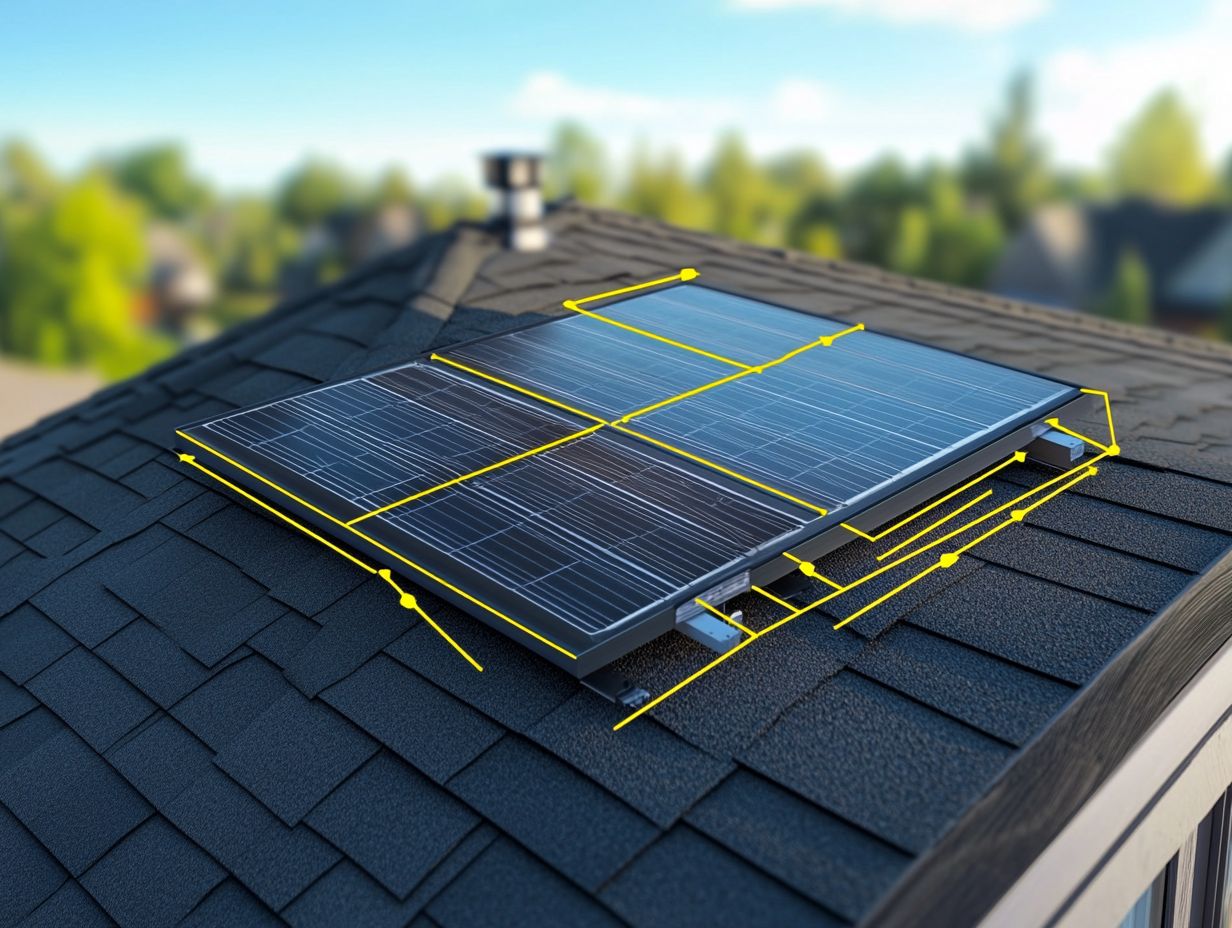
Understanding solar panel warranty coverage, including both product guarantees and warranty claims processes, is key to protecting your investment and making sure your system performs well for the long haul.
Most solar panels come with warranties that cover different aspects, like performance degradation, workmanship, and materials, ensuring consumer protection and reflecting the manufacturer’s reputation. Knowing the terms and conditions can really help you plan ahead for any maintenance or replacement needs that might pop up.
Understanding Different Types of Warranties
Solar panel warranties generally fall into two main categories: performance warranties and workmanship warranties, each covering different aspects of your solar energy system. A performance warranty typically guarantees a certain level of energy output over time, while a workmanship warranty focuses on the quality of the installation and the materials used.
Understanding these differences can really help you with your decision-making process. Performance warranties usually last about 20 to 25 years, which means you can count on your solar panels to produce a specified percentage of their rated capacity—typically around 80-90%—even after several years of use, supporting both energy efficiency and utility savings.
On the flip side, workmanship warranties can vary quite a bit in length, often ranging from 5 to 10 years. This type of warranty is there to ensure that the installation was done right, protecting you from potential defects that could lead to costly repairs.
Both warranties are essential for safeguarding your investment, ensuring that you not only enjoy efficient energy production but also have peace of mind regarding the installation integrity and quality control.
What to Look for in a Solar Panel Warranty
When you’re evaluating solar panel warranties, it’s important to know what key features and considerations to look for, including engineering standards and insurance options, to make sure you get the best coverage possible.
Pay attention to aspects like the warranty period, the terms and conditions, and the manufacturer’s reputation for handling warranty claims and offering support services, including customer service and installation costs.
Key features to look for include:
- Warranty period
- Terms and conditions
- Manufacturer’s reputation
- Coverage for performance degradation
- Workmanship coverage
When you’re diving into the key features of a solar panel warranty, think about things like the energy efficiency rating, coverage levels, and the specific terms that lay out what’s included and what’s not. Grasping these features can really help you make a smart choice and protect your investment in renewable energy.
One thing you definitely want to evaluate is the duration of the warranty. Longer coverage can provide that extra peace of mind, ensuring protection against potential product recalls and investment risk. Make sure to pay attention to both the performance warranty, which promises a certain level of energy production over time, and the product warranty, which covers any defects or workmanship issues, considering installation costs and repair services.
Understanding warranties is crucial for making informed decisions that secure your investment in solar energy.
Looking into the potential costs and savings tied to the warranty can give you a clearer picture of its overall value, impacting both energy independence and financial incentives. This means understanding how warranty claims could impact your energy efficiency, as well as any financial implications related to repairs or replacements. All of this ensures that you’re fully equipped to maximize your solar power investment.
Maximizing Solar Panel Durability
To get the most out of your solar panels and keep them running smoothly, it’s crucial to put some proper maintenance and care practices in place, including regular performance monitoring and maintenance schedules.
By regularly checking for dirt, debris, and any signs of wear, you can really boost the lifespan of your solar energy system, enhancing its efficiency ratings and cost-effectiveness. Plus, this effort can lead to greater energy savings and a smaller environmental footprint.
Maintenance and Care Tips
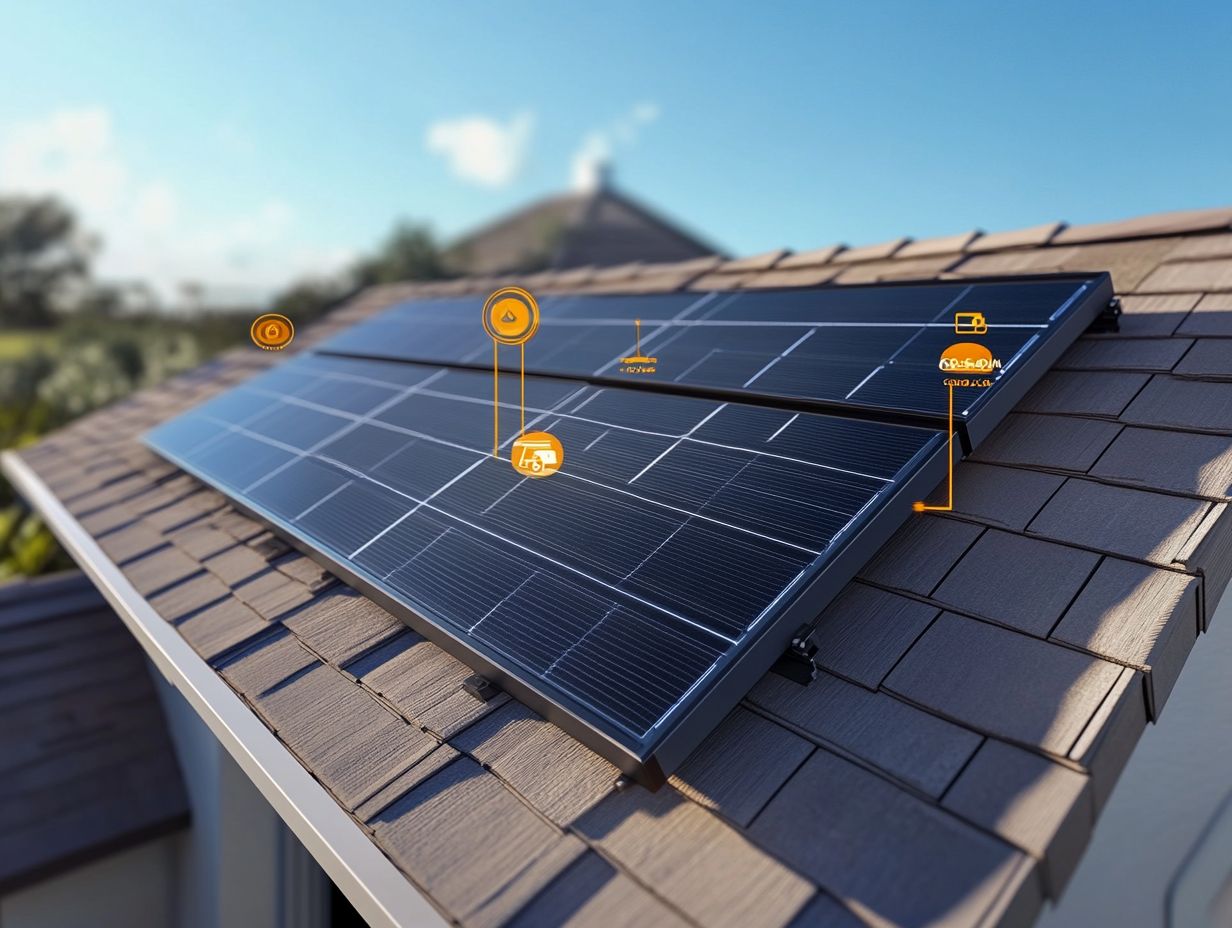
Regular maintenance and care are essential for ensuring your solar panels run at peak performance and efficiency over time, supporting operational efficiency and sustainability. Simple actions like cleaning the panels, checking for damage, and keeping an eye on their energy output can significantly extend their lifespan and help you maximize your energy savings, while also ensuring compliance with government regulations and climate impact considerations.
You should be proactive about scheduling periodic professional inspections to catch any potential issues early on and make sure that all components, including inverters and wiring, are working properly. Trimming back any foliage that could cast shadows on the panels will also help you get the most sunlight exposure.
By implementing these practical tips, you can boost the efficiency of your solar array and make a smart investment in your home, providing long-term benefits for both your energy savings and property value, while also enhancing your grid-tied systems and off-grid systems.
Evaluating Product Recalls and Warranty Claims
Knowing how to deal with damaged solar panels is key to protecting your investment in solar energy. Whether you’re looking at repairing or replacing those panels, understanding the warranty claim process, performance warranties, and your coverage options is super important.
This knowledge can help you minimize maintenance costs, extend the life of your solar system, and improve energy efficiency.
What to Do If Your Solar Panels Are Damaged
If your solar panels get damaged, there are some specific steps you need to follow to handle the situation effectively, considering aspects like photovoltaic performance and warranty claims.
- Start by assessing how bad the damage is and make sure to document everything thoroughly.
- Then, reach out to the manufacturer or installer to kick off a warranty claim or talk about your repair options, ensuring to discuss both photovoltaic efficiency and potential performance degradation.
It’s important to gather any relevant documentation you may have, like installation records, warranty information, and details about the degradation rate, to make the claims process smoother.
Once you’ve figured out what kind of damage you’re dealing with, consider calling in a certified technician to see if repairs are possible or if you need a replacement instead.
Repairing solar panels can often be a pretty straightforward process, but tackling maintenance issues quickly, including checking for weather resistance and temperature fluctuations, can save you from bigger headaches down the road.
And don’t forget to ask about any potential costs for repairs that might fall outside your warranty coverage; knowing this will help you plan your next steps financially and consider your return on investment.
Jordan, D. C., & Kurtz, S. R. (2013). Photovoltaic degradation rates—an analytical review. Progress in Photovoltaics: Research and Applications, 21(1), 12-29. Link
Frequently Asked Questions
What is solar panel durability?
Solar panel durability refers to how well a solar panel can withstand various weather conditions and environmental factors over time without significant deterioration or damage.
What factors affect solar panel durability?
- Material quality
- Environmental conditions (e.g., UV exposure, temperature extremes)
- Installation quality
- Maintenance practices
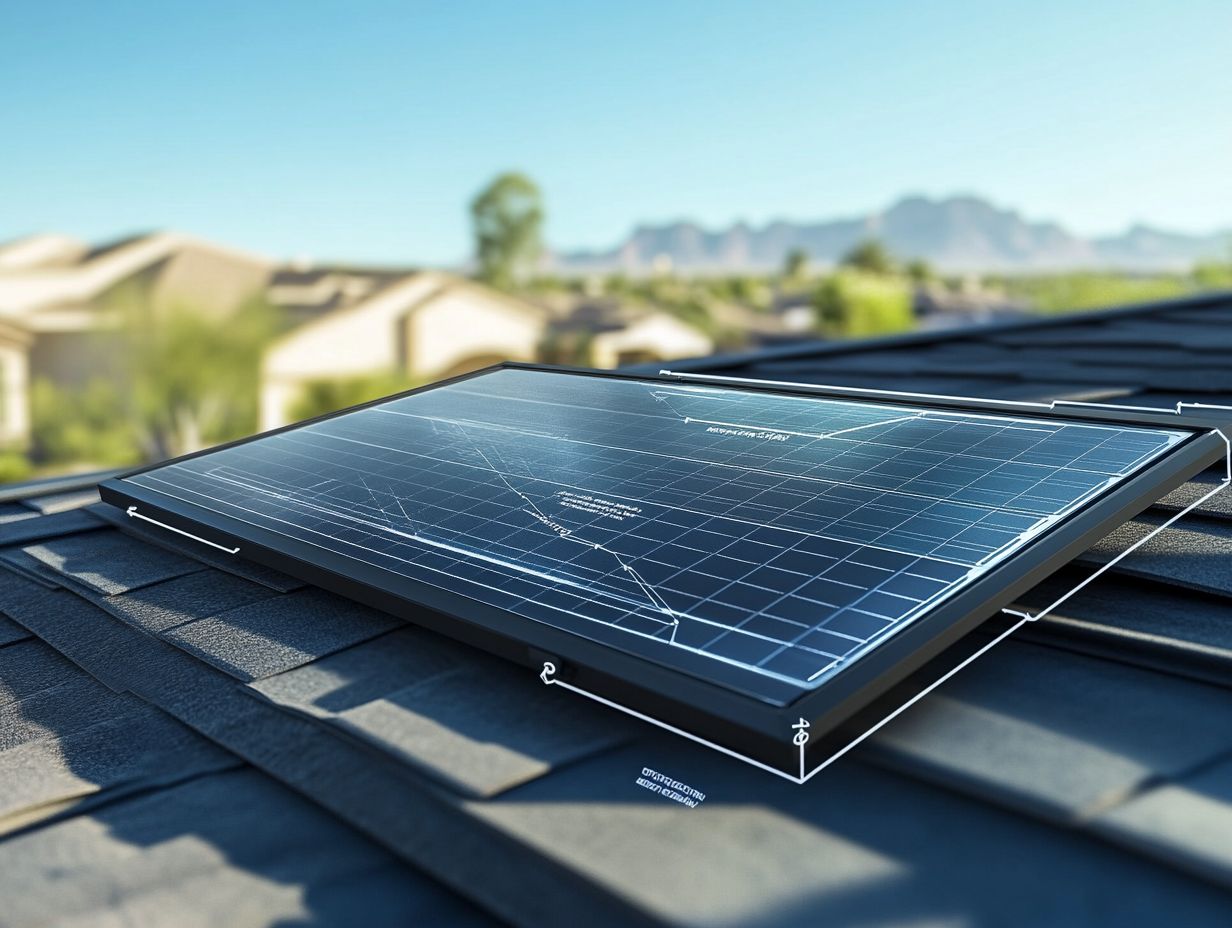
The main factors that affect solar panel durability include the quality of materials used, installation techniques, exposure to sunlight and extreme temperatures. Regular maintenance is also crucial for durability.
Do all solar panels come with a warranty?
Most reputable solar panel manufacturers offer a warranty for their products. However, the length and coverage of the warranty may vary. It is important to carefully review the warranty before purchasing solar panels.
What does a solar panel warranty typically cover?
A solar panel warranty usually covers defects in materials and workmanship, as well as power output and performance. It may also cover issues such as corrosion and degradation over time. The coverage aspects include:
- Defects in materials
- Workmanship
- Power output
- Performance
- Corrosion
- Degradation
How long do solar panel warranty periods typically last?
Solar panel warranty periods can range from 10 years to 25 years, with some manufacturers offering extended warranties of up to 30 years. It’s important to check the length of the warranty before purchasing solar panels.
What should I do if I have an issue covered by my solar panel warranty?
If you have an issue covered by your solar panel warranty, you should contact the manufacturer or installer as soon as possible. They will be able to guide you through the process of making a claim and getting the issue resolved. Make sure to keep all documentation handy for a smoother process.


